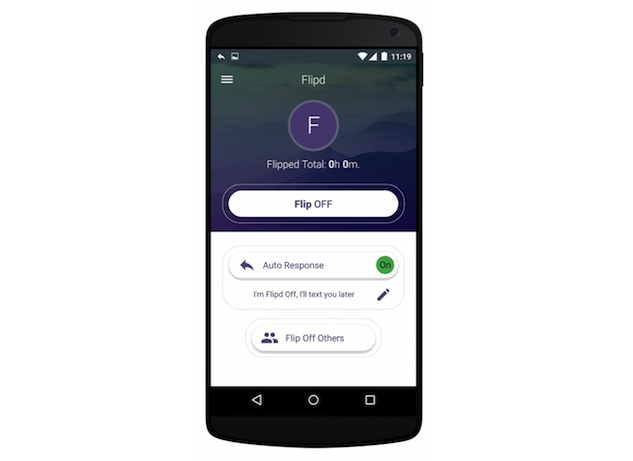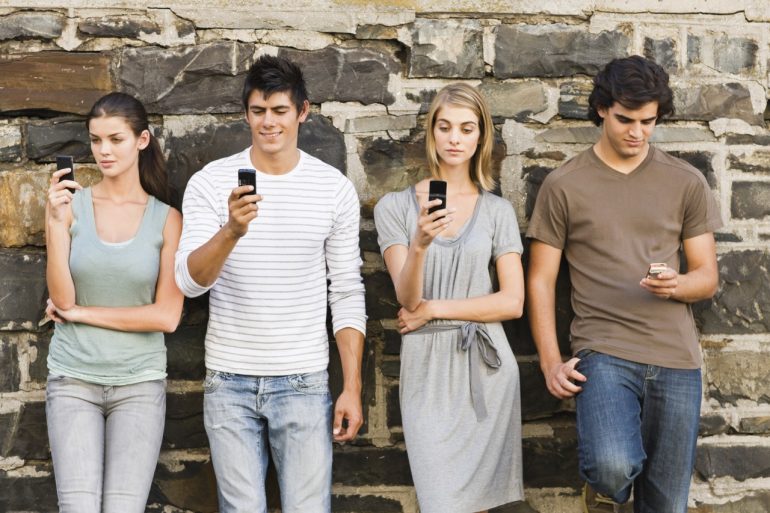Take a look around you the next time you’re riding the subway, or queueing at a coffee shop, and you’ll likely see someone using their smartphone. Given that 56% of Canadians have a smartphone, this behaviour will become more prevalent as smartphone penetration in Canada grows.
It would be hard to argue that heavy mobile phone use isn’t causing increased levels of stress via an inability to focus and more commonly, FOMO, or the fear of missing out. Sara Thomée, a researcher at the Sahlgrenska Academy at the University of Gothenburg, conducted a research study and found something more alarming. “The conclusion is that intensive use of ICT can have an impact on mental health among young adults,” the report states. In addition, “those who find the constant accessibility via mobile phones to be stressful are most likely to report mental symptoms.” The full findings of the research study can be found here, as well as Thomée’s thesis on ICT use and mental health in young adults.

Enter Flipd, a mobile app designed to control the habit of excessive phone use and reduce distractions.
Launched in late February, Flipd came to life when Cristian Villamarin (creative director at Flipd) gave his younger brother an iTouch as a gift when he finished middle school. “Now he’s always using it and he’s changed; he’s not the kid that goes outside to play anymore,” Villamarin said. “I needed to come up with an idea to control his device. So I spoke to Alanna to talk about how cool it would be to remotely control his phone. And that’s how Flipd got started.”
If you’re feeling distracted and need to focus, you simply launch the app, press a button and your phone is ‘locked’, preventing you from accessing your apps or making calls (Alanna Harvey, Flipd’s co-founder, told BetaKit you can still dial 911 in case of an emergency and receive texts and phone calls, so you’re not completely shut off from the outside world). Once you’re locked out, you’re completely committed, so changing the amount of time you’re unable to use your phone is not possible.
“The market is really new for digital detox apps.”
– Alanna Harvey
Flipd also allows for the remote locking of other users’ phones (provided they have the app installed), so it’s perfect for date night, those with less-than-ideal attention spans, or team working sessions.
“The market is really new for digital detox apps. All of the competitors that we’ve seen growing have launched within the last 8 months,” said Harvey. While they haven’t done a big marketing push, they’ve had over 4,000 downloads and have helped users save over 15,000 hours. “When we created the app, we thought parents would download it (based on research conducted), but we realized that when we launched the app, we saw that students were downloading it and using it if they needed to study. We didn’t see that coming.”
The reward for winning back your focus is not just getting your work done. If you stay off your device for the period you’ve been locked out, Flipd rewards you with incentives you can use in real life, such as discounts at Cineplex. While the app is free, the company plans to monetize by offering incentives through partners who are interested in promoting their product to the Flipd user base.
Flipd is available for Android devices, with an iOS version set to be released later this year.

